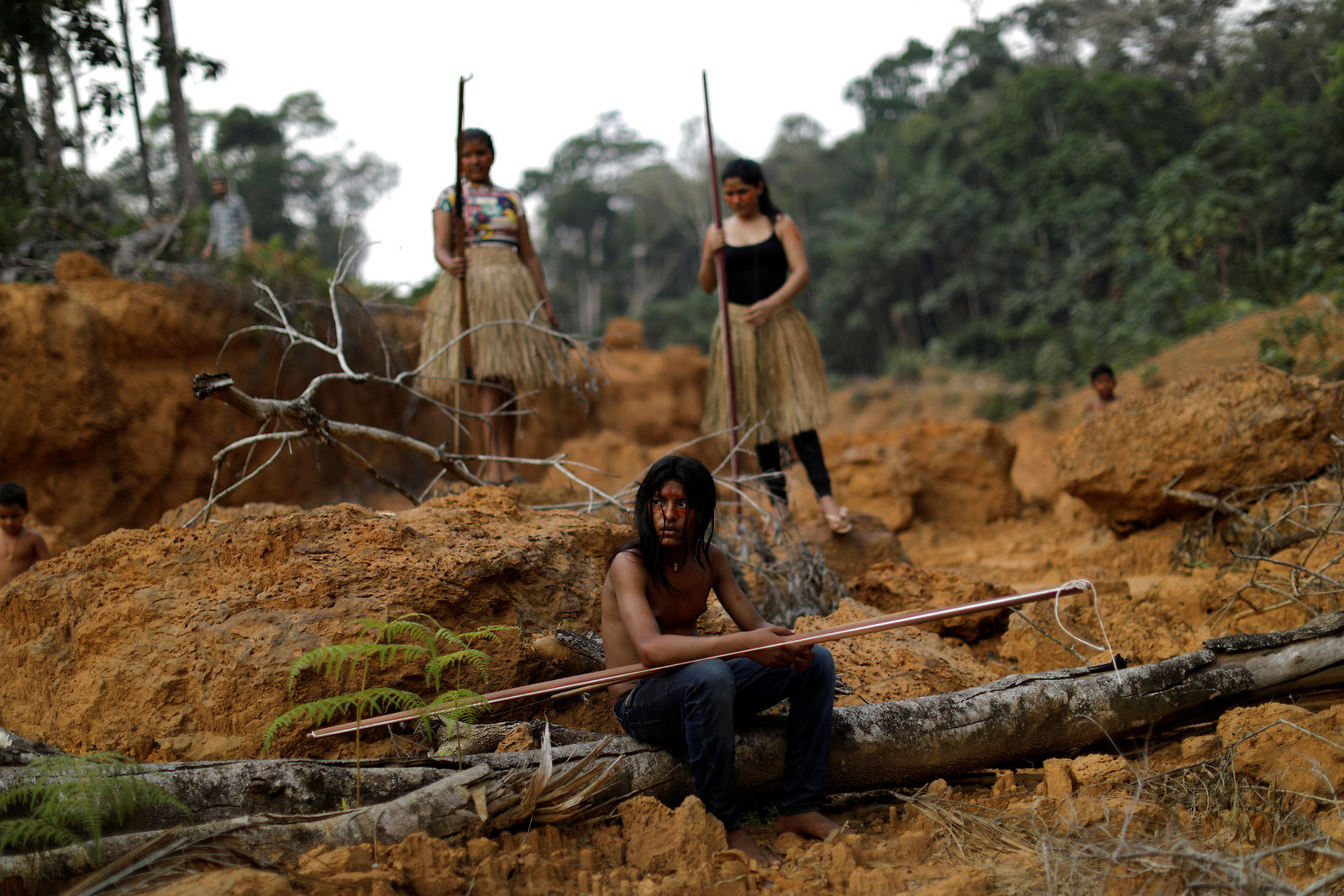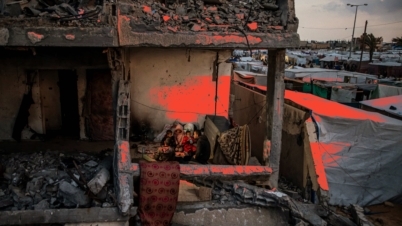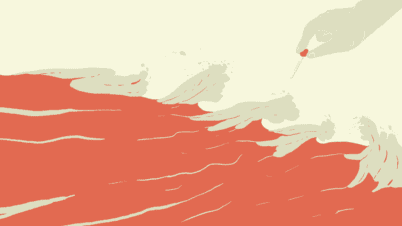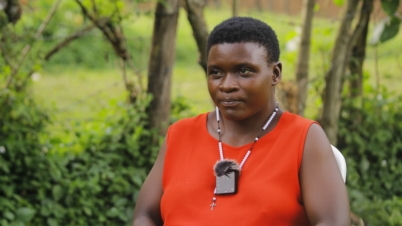
To reach global climate goals and halt the loss of biodiversity, it is essential to protect the areas that absorb and store CO2, as well as host the majority of the world’s biodiversity – forests, and especially, rainforests.
This has also been acknowledged by the EU, who have proposed a new regulation, which will give European companies increased responsibility in ensuring that they do not contribute to deforestation. The legislation will require that companies do not import products like coffee, cocoa, and beef, from areas that have been cleared of forest.
This is an important step, as the EU is the second largest importer of deforestation globally, explains Margrete Auken, a representative from the Green party in the European Parliament.
There is just one crucial element which the European Commission has forgotten in the draft regulation: the indigenous peoples, who according to research, experts, and the UN, are best at protecting nature.
After the regulation was proposed, 22 indigenous groups sent an open letter to the EU, where they made it clear that the proposal as it stands, does not protect their rights – and without that, the law will fail in its aim to end deforestation, they warn.
In the open letter, the EU is urged to change the regulation, so European companies are obliged to respect indigenous peoples’ land rights. Additionally, they request that the EU acknowledge the important role that indigenous peoples play in protecting the worlds forest, and the threats that companies pose to indigenous peoples livelihoods.
The open letter has received support from a host of NGO’s who work with promoting indigenous peoples rights.
According to Stefan Thorsell, an expert in climate and environment at IWGIA, an international organization fighting for indigenous peoples interests, European countries firstly need to live up to the content of the declarations, that they themselves have been part of creating and adopting in the UN, that seek to protect indigenous peoples.
“But additionally, in a cynical way, we also need to acknowledge that we will not be able to end deforestation, if indigenous peoples rights are not protected”, Thorsell emphasizes.
The UN Declaration on the Rights of Indigenous Peoples was adopted by the UN General Assembly on the 13th September 2007. The Declaration sets out a framework which establishes both individual and collective rights for indigenous peoples.
The Declaration emphasizes that indigenous peoples have the right to maintain and strengthen their own institutions, cultures and traditions. The Declaration also prohibits any discrimination against indigenous peoples. It furthermore gives increased protection for indigenous peoples unique cultures.
Indigenous peoples have a unique relationship to nature and to their territories, Stefan Thorsell explains to Danwatch – it is their livelihood, as well as an essential part of their culture.
“However, this unique relationship, is something that is constantly under pressure”, he continues.
Indeed, there are numerous examples of indigenous peoples territories being encroached on, and their rights violated, by companies who want to use their land for agriculture and extractive purposes.
It is these types of threats to indigenous peoples livelihoods, which paved the way for the adoption of a UN Declaration on indigenous peoples rights.
“This declaration is unique in comparison to all the other UN declarations and human rights conventions, because it focuses on indigenous peoples collective rights. They have, as a people, collective rights to self-determination, which includes the right to autonomy and self-government on their territory”, Thorsell explains.
The UN Declaration also includes the principle that indigenous peoples are to give their free, prior and informed consent, prior to any decision being taken, which affects them and their territory.
The principles enshrined in the UN Declaration are significant because indigenous peoples own land in a different way than others. They seldom have a title to the land, as most do when they have a right to the land.
Nonetheless, through the UN Declaration, it is internationally acknowledged that one cannot displace indigenous peoples from the territories that they have traditionally lived on, and rely on for their livelihoods, without their free, prior, and informed consent.
The Member States of the UN have committed to upholding the principles in the Declaration. “But, in spite of this, the challenges and the fight continue every single day for indigenous peoples all over the world”, says Thorsell.
Violations of indigenous peoples rights is thus, first and foremost, in violation of the UN Declaration and their human rights.
But violations of indigenous peoples rights are also a massive problem in relation to the global loss of biodiversity.
Indigenous peoples only make up around 6% of the world’s population, but in spite of this, they protect almost one fourth of the world’s surface – “and this is typically tropical forests and other entirely unique ecosystems”, says Thorsell.
Indeed, research from the World Bank shows that indigenous peoples protect almost 80% of the world’s biodiversity.
In addition to the repercussions for biodiversity, violations of indigenous peoples rights also have detrimental effects on the climate.
Emissions from deforestation are, second to fossil fuels, the main cause of climate change, according to the IPCC. This is, amongst others, because forests are essential for storing and absorbing CO2. And when forests are cleared, large amounts of CO2 are released into the atmosphere.
A new report from Forest Declaration Platform, a collaboration between the UNDP and three organisations with expertise in climate solutions, conclude that it will not be possible to reach the goals in the Paris Agreement, if indigenous peoples rights and territories are not protected. In fact, the report establishes that, in countries like Brazil, Colombia, Mexico and Peru, areas that are controlled by indigenous peoples, absorb more than double the amount of CO2.
FAO and IPCC similarly report that combatting climate change and reaching climate goals depends on recognizing and protecting indigenous peoples territories.
Anne-Sofie Sadolin Henningsen, advisor for the organisation Verdensskove with expertise in climate, points out that as these studies show, that in the areas where indigenous peoples live, forests are far more biodiverse and better protected.
“And the forests are essential. We are inherently dependent on forests being protected if we are to, in any way, ensure that we do not get global temperature increases with very serious consequences”, Henningsen continues.
The European Commission presented their draft regulation on deforestation free products on the 17th of November 2021. The proposed regulation gives European companies responsibility for ensuring that their import of the following commodities: soy, beef, palm oil, wood, cacao and coffee, does not come from land that has been cleared of forest after 2020.
Companies will be required to collect geographic coordinate of the land where the commodities they place on the market were produced. The EU will in this way be able to ensure that only deforestation-free products enter the EU market.
The European Commission expects that the regulation will contribute to decrease CO2 emissions and halt the loss of biodiversity.
The EU have also come to recognize that it is essential to halt deforestation if global biodiversity is to be protected and CO2 emissions are to decrease.
On the 17th November 2021, the Commission presented the draft regulation, “Regulation to minimize EU-driven deforestation and forest degradation”.
The draft regulation gives companies responsibility for ensuring that their import of soy, beef, palm oil, cocoa and coffee, does not come from land that has been deforested after 2020.
The draft regulation is part of a broader strategy that was first outlined in 2019: “Commission Communication on Stepping up EU Action to Protect and Restore the World’s Forests”.
In this original strategy, the Commission emphasized that protecting indigenous peoples rights was essential to halt deforestation.
In spite of this, the final draft regulation from the Commission is limited, to say the least, when it comes to indigenous peoples rights – indigenous peoples’ rights is only referred to one time in the draft.
This has caused a reaction from many indigenous peoples and NGO’s working to promote indigenous peoples rights – resulting in, amongst others, the open letter sent to the EU.
The 22 indigenous organisations, who signed the open letter, represent hundreds of thousand indigenous peoples from all over the world – from Bangladesh to Brazil, Congo to Indonesia, the Philippines to Tchad. In addition to this, 161 environmental- and human rights organizations have signed the letter.
Stefan Thorsell, from IWGIA, also reacts strongly to the lack of reference to indigenous peoples in the draft regulation.
In the draft it says that European companies must:
But, the national laws in many of the countries where deforestation is a severe problem, often provide very limited protection for the rights of indigenous peoples. And the draft regulation does not mention international rights and standards at all.
This is very problematic, Thorsell explains to Danwatch, and adds that there are many states who do not see themselves as obliged to protect the rights that are included in the UN Declaration on indigenous peoples rights.
For example, there has been a disturbing development in Brazil over the past years. Between 2016-2018, the FAO reports that deforestation on indigenous peoples territories in Brazil increased with 150%.
This situation has deteriorated even further since Jair Bolsonaro became president in 2018. According to critics, Bolsonaro is promoting the “death agenda” against indigenous peoples.
“This is exactly why, it is not sufficient that the EU is saying that companies must comply with national laws”, Thorsell cautions.
Thorsell still sees potential in the draft regulation from the EU, because it at the very least raises the current standards. “However, it is essential that the text on indigenous peoples rights is strengthened in the regulation”, he continues.
Margrete Auken is similarly sceptical of the current reference to national – rather than international – law. Auken sits in the European Parliament, the body who initiated the work of seeking a European solution to deforestation, and who will also decide whether the draft regulation is adopted.
“The draft regulation from the Commission is very poor in comparison to what we first tabled in the Parliament. It is much weaker than what we initially suggested”, Auken tells Danwatch.
Companies’ interest is first and foremost profit. Also in the instances where the rights of indigenous peoples are on the line.
Stefan Thorsell, expert in climate and environment for IWGIA
Already in September 2021, the two NGO’s Global Witness and Client Earth released a report where they warned the Commission against disregarding the people who live in, depend on, and protect the forests, in the regulation.
Anne-Sofie Sadolin Henningsen, who works for the organization Verdensskove, emphasizes that the EU bears a large responsibility in this matter – “EU is the second largest importer of deforestation, and deforestation is, unfortunately, very often tightly connected to violations of indigenous peoples rights”.
Thorsell from IWGIA says that, in some instances, we are talking about a lack of understanding from companies when it comes to indigenous peoples and their territory. But, there are also many examples of deliberate violations, he emphasizes.
“In the past six years, companies from the EU have been either directly or indirectly connected to around 10% of all documented attacks by companies on rights defenders around the world”, Thorsell explains to Danwatch.
Concurrently with the severe consequences that deforestation has on global biodiversity and our climate, deforestation is thus also connected to violence and violations of indigenous peoples rights.
A number of companies have today agreed to and signed international initiatives such as the UN Guiding Principles on Businesses and Human Rights (UNGP). The UNGP sets out a framework for companies’ responsibility in ensuring that they do not violate human rights. Similarly, many companies have set up large CSR-departments, who work on companies’ social responsibility.
“In spite of this”, Thorsell says, “on indigenous peoples territories, far away from the public’s eye, the reality is a very different one. This is obvious by, amongst others, the number of human rights- and environmental defenders, who are attacked and killed”.
In a recent report from Global Witness, it was documented that in 2021 alone, no less than 227 human rights- and environmental defenders were killed. And out of these, over a third were indigenous peoples. The report furthermore showed that a significant number of the murders were connected to deforestation and agriculture.
This is exactly why it is essential that the text concerning indigenous peoples rights is strengthened in the draft regulation, says Thorsell, “the EU must use their position of power to support and promote the global declarations, that the European countries themselves have adopted in the UN”.
The draft regulation that the Commission proposed now lies with the European Parliament and the European Council, where it is expected that a decision will be made, in relation to potential changes made to the regulation, in June this year.
Margrete Auken from the EP says it is essential that the Parliament pushes for a number of changes in the regulation before it is adopted.
“First and foremost, there are human rights and there is nature that has been completely ignored in the draft regulation”, she tells Danwatch and adds that indigenous peoples rights have been disregarded:
“Their rights are not included in the draft. This means, that it will be all too easy to come and force them away from their territories”.
In the final regulation, it should therefore be clear that indigenous peoples rights must be respected, and that one must look to international standards, Auken emphasizes.
“One should not toss away the draft from the European Commission, but one needs to acknowledge that at present, it is too flawed to be able to do what it set out to do meaningfully”, she concludes.



